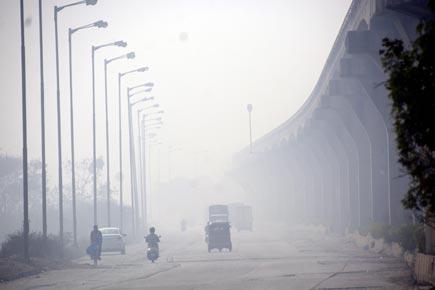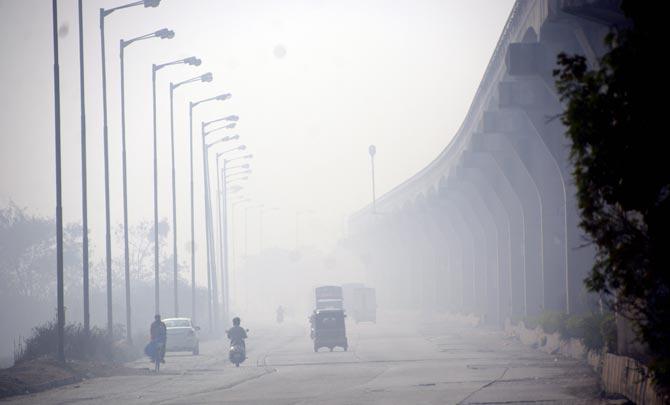Nine out of 10 people globally are breathing poor quality air, the World Health Organization said today, calling for dramatic action against pollution that is blamed for more than six million deaths a year

Geneva: Nine out of 10 people globally are breathing poor quality air, the World Health Organization said today, calling for dramatic action against pollution that is blamed for more than six million deaths a year.
ADVERTISEMENT
 Mumbaikars have to battle smog in the morning to be able to see. Pic/ Pradeep Dhivar
Mumbaikars have to battle smog in the morning to be able to see. Pic/ Pradeep Dhivar
New data in a report from the UN's global health body "is enough to make all of us extremely concerned," Maria Neira, the head of the WHO's department of public health and environment, told reporters.
The problem is most acute in cities, but air in rural areas is worse than many think, WHO experts said. Poorer countries have much dirtier air than the developed world, according to the report, but pollution "affects practically all countries in the world and all parts of society", Neira said in a statement.
"It is a public health emergency," she said.
"Fast action to tackle air pollution can't come soon enough," she added, urging governments to cut the number of vehicles on the road, improve waste management and promote clean cooking fuel. Today's report was based on data collected from more than 3,000 sites across the globe.
It found that "92 percent of the world's population lives in places where air quality levels exceed WHO limits".
The data focuses on dangerous particulate matter with a diameter of less than 2.5 micrometres, or PM2.5. PM2.5 includes toxins like sulfate and black carbon, which can penetrate deep into the lungs or cardiovascular system.
Air with more than 10 microgrammes per cubic metre of PM2.5 on an annual average basis is considered substandard.
In some regions satellite data has been complemented by ground-level PM2.5 measurements, but in much of the developing world ground readings remain unavailable, forcing the WHO to rely on cruder estimates.
Despite these data gaps, Neira said the UN agency now had more information than ever about pollutants in the planet's air.
Using both satellite and ground measurements "is a big step forward towards even more confident estimates of the huge global burden", of dirty air, she added.
The WHO has estimated that more than six million deaths per year are linked to exposure to outdoor and indoor air pollution.
Data is more solid for outdoor pollution, which is blamed for more than three million fatalities annually. But indoor pollution can be equally as harmful, especially in poorer developing world homes where cooking often involves burning charcoal.
Nearly 90-percent of air pollution-related deaths occur in low and middle-income countries, the WHO said.
Southeast Asia and the Western Pacific region -- including China, Malaysia and Vietnam -- are the hardest hit, the data showed.
Using a different data set, the WHO reported in May that 80 per cent of the world's city dwellers breathe poor quality air, a figure that rose to 98 per cent in poorer countries.
 Subscribe today by clicking the link and stay updated with the latest news!" Click here!
Subscribe today by clicking the link and stay updated with the latest news!" Click here!






